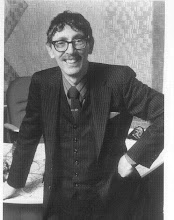Sunday, August 5, 2012
My Latest HuffPost Blog:"2 Celebrated Authors' Precognitive Dreams"
Two Celebrated Authors' Precognitive Dreams!
Posted: 07/24/2012 5:14 pmReact
Is it possible to accurately visualize the future in one's dreams? According to two of the world's foremost authors,the answer is a decided YES!
America's Mark Twain and his younger brother Henry were both laboring aboard the steamboat Pennsylvania which sailed the Mississippi between New Orleans and St. Louis.
On one dark night in the late 1880s, at his sister's home in St. Louis, Twain awoke in terror from-a-frightful, realistic nightmare. He had dreamed that Henry had died, and that his brother's corpse was lying in an open metal coffin. On his chest was an elaborate bouquet of white flowers marked by a single red rose in the center.
Twain, in his early 20s at the time, could not fall back asleep for several hours. Instead, he lay awake dwelling on his dream's deadly implications.
Two weeks later, he transferred to another riverboat while Henry remained aboard the Pennsylvania. Shortly thereafter, as the Pennsylvania was steaming into Memphis harbor, four boilers violently exploded. Most of the crew members were critically wounded, including Henry.
He died a few days later. Already, the first part of the nightmare had materialized.
Then, at the local funeral parlor, Twain saw all the victims in their coffins. One was more expensive than the others: it was metal and had been paid for by several local ladies who had adored the handsome Henry.
The nightmare's second key aspect had come true.
As Twain gazed tearfully upon his beloved brother, an attractive young woman quietly walked up to place a spray of white flowers with a single red rose at its center on Henry's chest. The remaining element of the deadly dream had become reality!
Equally famous English writer Charles Dickens actually had two separate supernatural experiences involving loved ones. After his father died, Dickens awoke one morning out of a deep sleep to see his dad seated beside his bed. He was shocked, and yet elated. But, when he reached out to touch the apparition, it dissolved.
Then in 1837, the 25-year-old Dickens became profoundly depressed over the unexpected death of his sister-in-law, Mary Hogarth. He had apparently been in love with her. But his feelings went unrequited, at least in life.
After Mary died, he began seeing her in dreams so vivid that it seemed as though Mary's spirit actually was visiting him from beyond the grave. On one occasion, Dickens claimed Mary's spirit actually materialized before him, floated up to the ceiling and disappeared. Her appearances may have inspired the massive output of literary works he then produced.
Noted parapsychological investigator Brad Steiger, author of "Undying Love" (Berkley), exhaustively researched both cases and declared:
"Without a doubt, Twain and Dickens both had paranormal experiences involving dreams!"
Subscribe to:
Post Comments (Atom)


No comments:
Post a Comment